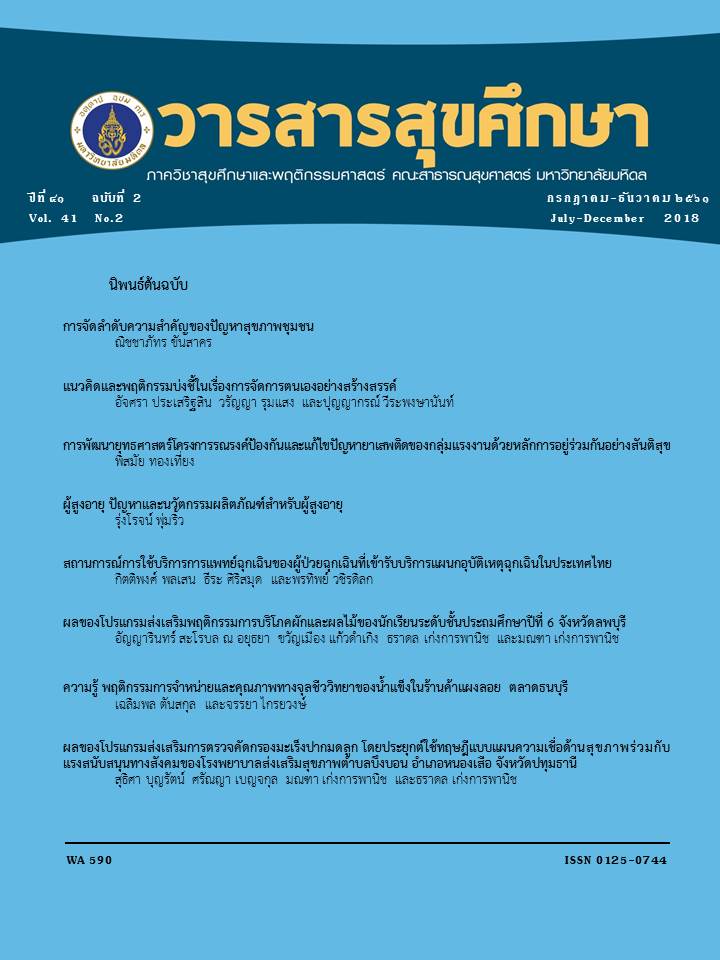Effectiveness of Sexuality Education and Pregnancy Prevention Program for Secondary School Students in Suphanburi Province
Keywords:
Sex Education Program, Information Motivation and Behavioral Skills Model, Teenage Pregnancy PreventionAbstract
This study was quasi-experimental research and aimed to test the effectiveness of sexuality education and pregnancy prevention program for junior secondary school in Suphanburi province. The sample of 65 8th grade students from two classes that were randomly assigned into an experimental group (30 students) and a comparison group (35 students). The experimental group received sex education and pregnancy prevention program intervention, Information, Motivation, and Behavioral Skills Model for 7 weeks through lectures with slides, demonstration of condom use, negotiation and abstinence skills, enhancing motivation through social networks line group line and learning from positive role models. The comparison group attended normal class learning activities. Data were collected before and after the experiment using a questionnaire and were analyzed and presented in percentage, mean, standard deviation, while Paired samples t-test and Independent samples t-test were used to test the study hypotheses. After the experiment, the experimental group gained significantly higher mean scores on knowledge about sex and pregnancy prevention; attitude toward pregnancy prevention; perceived self-efficacy and behavioral practices to prevent pregnancy in school than before the experiment and higher than that of the comparison group with p<0.05. Therefore, it is recommended that secondary schools should use this program related to sex and teenage pregnancy to help students the cope with the problems school context.



